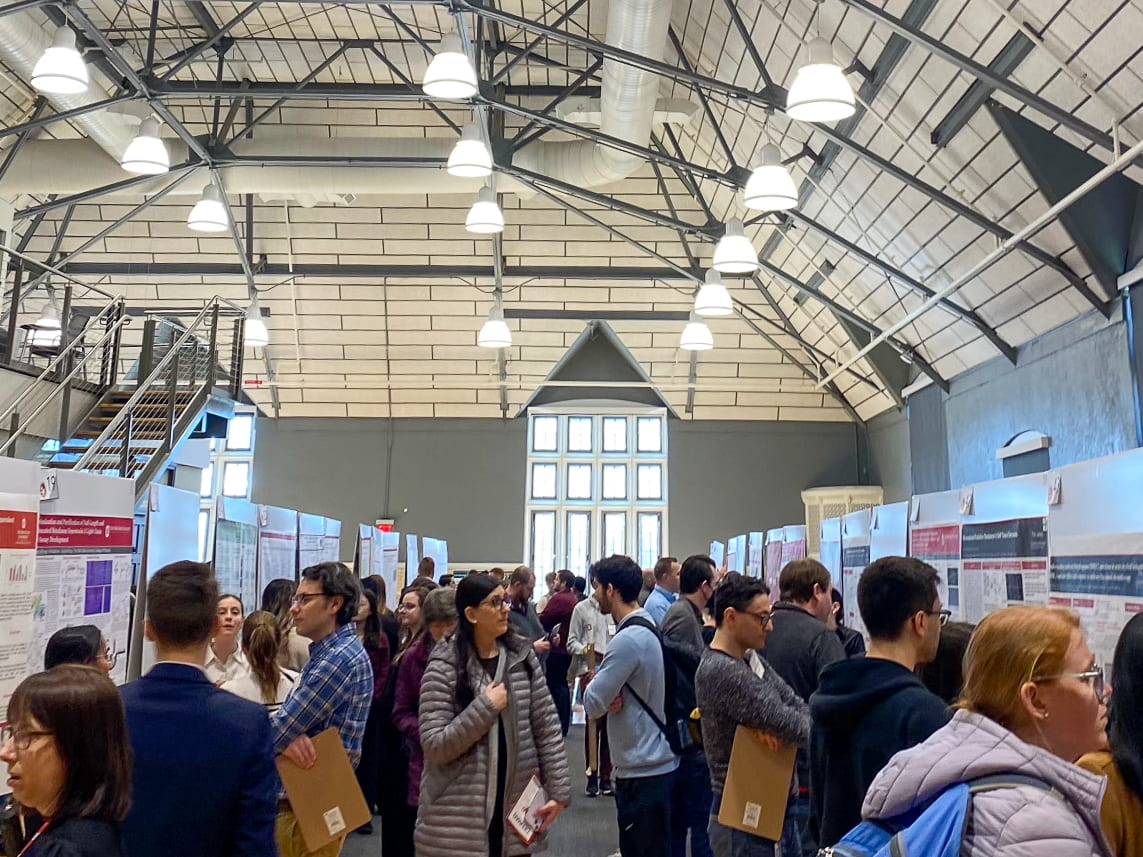
The 28th annual Denman Undergraduate Research Forum showcased innovations ranging from medicine to engineering. Credit: Meghan Beery | Lantern Reporter
While some students are taking on midterms, lectures and homework, others went beyond the classroom with the 28th annual Denman Undergraduate Research Forum Tuesday.
Over 200 undergraduate researchers filtered through Pomerene Hall’s Translational Data Analytics Institute Ideation Zone to present and share their research with faculty, community and alumni reviewers, fellow students, staff and the general public.
“My favorite parts of the forum are seeing the passion with which students speak about their research experiences and seeing the entire university community come together,” Claire Sweigart, program director of Undergraduate Research & Creative Inquiry, said in an email.
According to the forum’s website, the 10 categories included innovations in medicine, pediatrics and family health, engineering and technology and public health. There were four sessions for students to present their research.
Ty Wright, communications specialist for the Office of Undergraduate Education, said in an email student presenters receive scores from three faculty, community or alumni reviewers.
“Students [are] reviewed on their ability to communicate their research process and results effectively in both their written poster content and accompanying oral presentation,” Wright said. “These scores [are] totaled to determine winners in each category.”
First, second and third place winners as well as honorable mentions from the forum’s 10 categories this year will receive a certificate of scholarship, a medallion and ribbon and cash prize, according to its website. The winners will be announced Thursday 4-6 p.m.
Sweigart said the forum helps students develop skills beyond the classroom.
“Faculty-mentored undergrad research experiences have been shown to have a high impact on student learning, retention, and graduation,” Sweigart said. “These experiences help students develop in-demand skills like critical thinking, creativity, problem-solving, and independence, as well as an innovation mindset.”
Carly Fisher, a fourth-year in biology who presented in the Health Under the Microscope category, said she decided to present her research on the FAN1 gene and its potential contributions to Huntington’s disease — a neurodegenerative disorder — to share the novel research with others.
“This is new research,” Fisher said. “So, I thought that being able to share this with people would, maybe, inspire others to look into this or just spread awareness.”
Anikait Gadi, a fourth-year in psychology, said his research on maladaptive coping mechanisms, such as substance abuse, and their effect on seeking treatment for depression is something college students in particular tend to “overlook.”
Gadi said sharing research is important because it can shed light on nuanced issues, such as mental health.
“It’s important to share this kind of information with this population because of its effect — it’s very current,” Gadi said.

